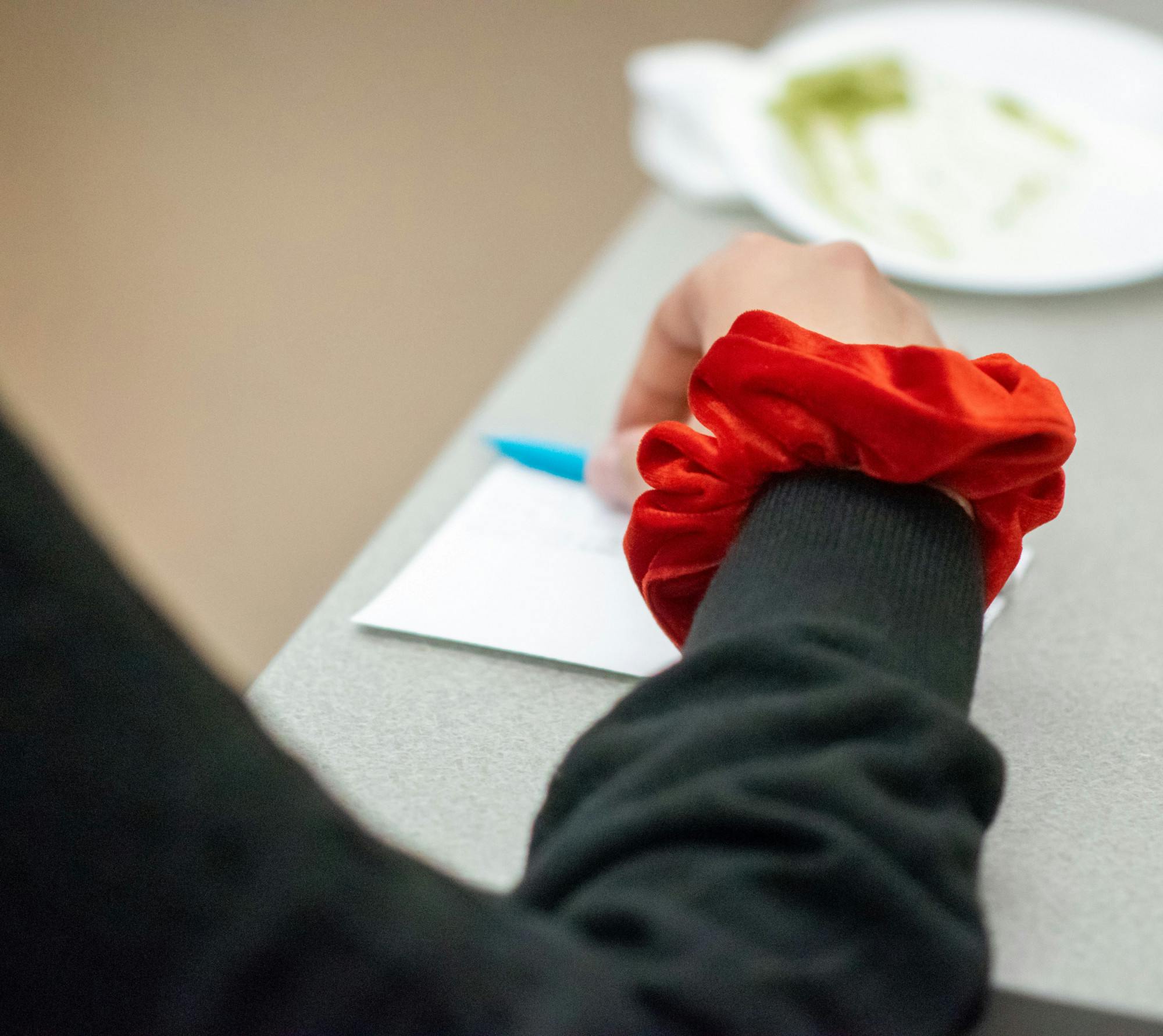With less than one week of Ramadan left, Muslim students are still having trouble participating in the holiest month of the year.
Ramadan started on April 1 and will end May 1, since Ramadan falls on the ninth month of the lunar year.

During the getting ready for Ramadan meeting on March 31, 2022, Muslim students were asked to write what their goals were for this upcoming Ramadan.
With less than one week of Ramadan left, Muslim students are still having trouble participating in the holiest month of the year.
Ramadan started on April 1 and will end May 1, since Ramadan falls on the ninth month of the lunar year.
This is Lyman Briggs freshman Safa Karaein’s first year on Michigan State University’s campus and she said does not feel like Ramadan is being as appreciated and recognized the way other religious holidays like Christmas and Thanksgiving are on campus.
Ramadan is believed to be the month the Qur’an (Koran), or the Islamic holy book, was first revealed. The Qur’an states the importance of fasting during Ramadan, and Karaein said fasting on campus is a struggle that the Michigan State University administration could better understand.
After breaking her fast around 8:15 p.m. every day, Karaein said that Muslims on campus only get about 40 minutes for iftar, or dinner, before cafeterias close at 9 p.m.
During this time, Ramadan partakers can also pick up prepackaged breakfast options at a dining hall in their neighborhood for suhoor, or the meal before dawn.
Additionally, there is a special dinner menu in one of the dining halls in every neighborhood for people participating in Ramadan, but Karaein said she thinks the dining halls could give Ramadan participants more than one option per neighborhood.
“There shouldn’t be a reason we’re eating the same two things, and those two things … they’re not the best of options,” Karaein said. She said the food does not look, smell or taste very appetizing.
In addition to fasting, Muslims are expected to abstain from smoking, drinking alcohol, sexual activities and pray multiple times a day. Karaein said that her family has a designated space in her home where they pray every year.
However, Karaein stays in Holmes Hall and the closest prayer room to her is a 10-minute walk to the Law Library.
“We do pray during very dark times, and it can be dangerous to leave your room,” Karaein said.
She said she asked to get a room in her hall to designate for prayer but there have been ongoing complications.
“It feels like we’re losing touch with part of our religion,” Karaein said. “(On campus) you’re doing the basics, you pray, and you eat, but you’re not really getting the feeling of, 'This is my month’.”
Like Karaein, Muslim Students Association executive board member and biosystems engineering sophomore Neta Vitija said she also hopes that there can be more reflection rooms around campus since she has had good experiences with them.
“The special thing about our prayer is that there is a lot of movements and bending over involved so it looks weird to do it in public, so that’s why we would like to have those reflection rooms,” Vitija said. “Campus is just so big. It can be a hassle to go to class in one building and then go to pray in another.”
Vitija is also spending her first Ramadan away from family and said the community iftars by student organizations have been nice to participate in.
“It’s our first time away from home, so breaking fast with friends is always a great pleasure,” Vitija said.
The Islamic Society of Greater Lansing has also welcomed the Lansing community and MSU students during Ramadan and for a celebration on Eid-al-Fitr, or the last day of Ramadan.
Vitija has an exam on Eid and said her professor was willing to reschedule it for her so she can celebrate this holiday. However, she said she recently had an exam in another class that started at the same time as iftar.
“I know a lot of students who have had to take exams during our iftar time,” Vitija said.
Support student media! Please consider donating to The State News and help fund the future of journalism.
If students can get their exams rescheduled, Vitjia said, their options are to take them at 8 or 9 a.m. She said this is not ideal since Ramadan partakers wake up around 5 a.m. to pray, eat suhoor and then fast for the rest of the day.
“Giving an exam retake in the super early morning isn’t feasible at all, so people would rather break their fast while they’re taking an exam,” Vitjia said. (8:50) “I would really hope that more professors are more respectful of our timing throughout the day and accommodate us more next year.”
To wish Ramadan participants well, people can say “Ramadan Kareem” (“have a generous Ramadan”) or “Ramadan Mubarak” (“Happy Ramadan”).